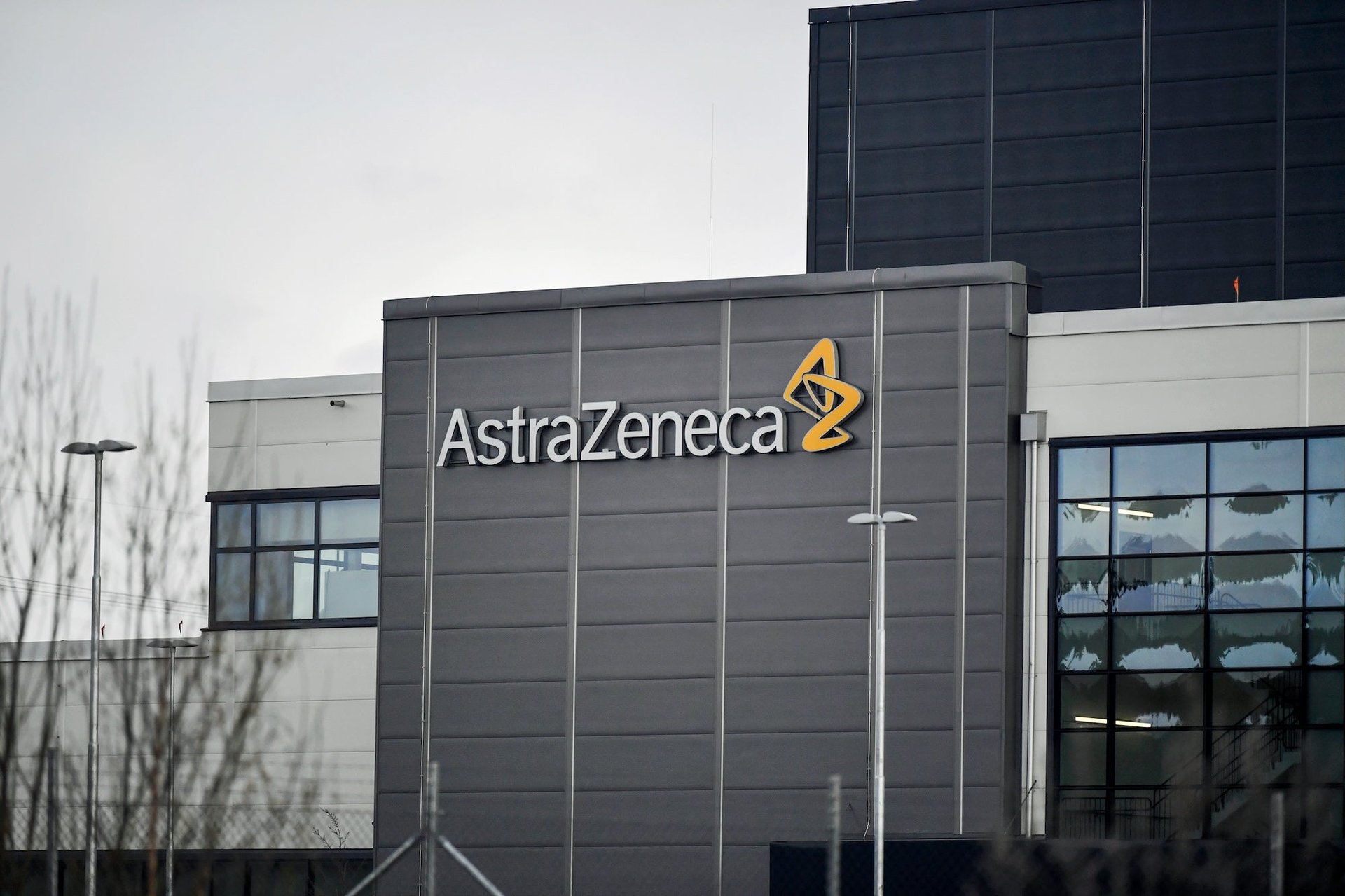AstraZeneca is betting $2 billion on next-generation cancer treatments
AstraZeneca is acquiring Fusion Pharmaceuticals in a $2-billion deal

The share price of Fusion Pharmaceuticals doubled almost instantly on Tuesday after AstraZeneca announced it is acquiring the next-gen cancer treatment maker for $2 billion.
Suggested Reading
British-Swedish drugmaker AstraZeneca has agreed to buy all outstanding shares of Fusion at $21 per share, according to a release. That’s a stunning 97% premium from the company’s closing price of $10.64 on Monday. The transaction is expected to be completed by the second quarter of this year. Thanks to the announcement, Fusion’s stock doubled to $21.06.
Related Content
The deal represents AstraZeneca’s entry in to the radiopharmaceutical drug market, which use radioactive components to treat users. Fusion is developing next-gen cancer treatments known as radioconjugates. These medications hit cancer cells directly via radioactive isotopes that target molecules like antibodies and peptides.
Fusion’s most advanced medication, known as FPI-2265, is used to treat prostate cancer. It’s currently in a phase-two trial.
“Together with Fusion, we have an opportunity to accelerate the development of FPI-2265 as a potential new treatment for prostate cancer, and to harness their innovative actinium-based platform to develop radioconjugates as foundational regimens,” said Susan Galbraith, AstraZeneca’s executive vice president of Oncology R&D, in the statement.
Another next-gen cancer deal
This deal is another in recent string of acquisitions of next-gen cancer makers made by pharma giants.
📈 Interest in these companies buoyed in 2022, when the U.S. Food Administration approved a treatment from Novartis that was shown to extend the survival of prostate cancer patients.
💊 Since then, Eli Lilly announced in October its plans to acquire POINT Biopharma in for $1.4 billion. POINT Biopharma’s late-stage pipeline includes treatments for prostate cancer and tumors found in the pancreas.
🫁 Bristol Myers Squibb announced in December that it was acquiring RayzeBio for $4.1 billion. RayzeBio’s development pipeline includes medications for small-cell lung cancer and pancreatic tumors, among other treatments.
